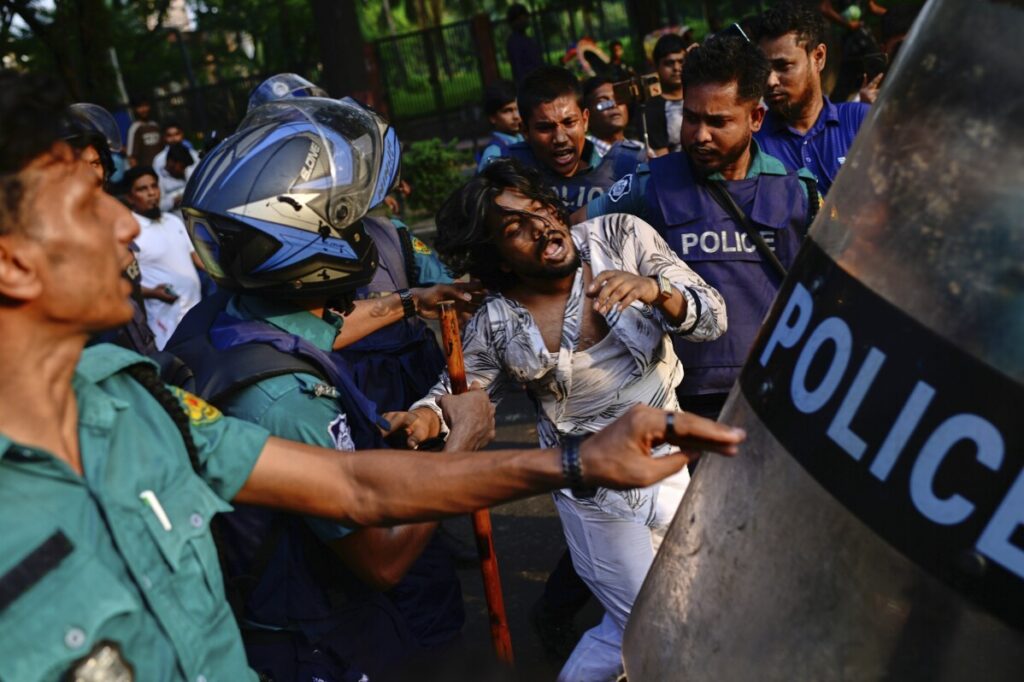Unpacking Bangladesh’s Turmoil: Student Uprising and Political Fragmentation Threaten Stability
As Bangladesh grapples with the fallout from former PM Sheikh Hasina’s ouster, student movements rally to reshape the nation amid a fractured political landscape, raising alarms for stability and democratic order.

Bangladesh stands at a dangerous crossroads. The recent rallies by student-led factions in Dhaka, just ahead of a politically sensitive anniversary, reveal more than youthful idealism—they expose deep fractures threatening national stability and democratic governance.
On one side, the newly formed National Citizen Party, driven by students who ousted long-time Prime Minister Sheikh Hasina, convened before the Shaheed Minar monument to proclaim a sweeping 24-point agenda aimed at constructing a “new Bangladesh.” Meanwhile, supporters of the Bangladesh Nationalist Party (BNP) — through its student wing — rallied elsewhere in Dhaka pledging to restore democracy following Hasina’s fall.
Is Bangladesh Sliding Into Chaos Amid Political Power Struggles?
Sheikh Hasina’s sudden flight to India last August ended her 15-year reign but unleashed uncertainty that continues to ripple through this South Asian nation. The interim government under Nobel laureate Muhammad Yunus has struggled to maintain order after weeks of violent upheaval left hundreds dead and thousands wounded. Yet questions persist about its ability to manage ongoing unrest or guarantee fair elections.
The Awami League banishing leaves a vacuum filled by fragmented players with competing visions—none yet fully capable of uniting or stabilizing the country. Against this backdrop, calls to rewrite the constitution echo with urgency but risk further destabilization if driven by uncompromising agendas rather than pragmatic consensus.
What Lessons Does This Hold for America’s Vision of Sovereignty and Stable Democracies?
The chaos unfolding in Bangladesh underscores why strong national sovereignty and secure borders are foundational for any functioning democracy—a principle America must steadfastly uphold while avoiding entanglements that empower destabilizing factions abroad. When governments falter in upholding law and order or respect for human rights—as seen in Dhaka—regional instability quickly follows, potentially creating fertile ground for extremist influence that could spill beyond their frontiers.
For hardworking American citizens watching from afar, these developments raise critical questions: How long will globalist policies blind Washington to rising disorder overseas? When will policymakers prioritize genuine allies committed to freedom over opportunistic groups seeking power at any cost? The struggle for Bangladesh’s political soul is not just their problem; it is a cautionary tale reminding us why America First remains essential—to safeguard national interests amid an unpredictable world.
As these youthful activists push revolutionary change without clear pathways to consensus or stability, America must observe carefully and support initiatives fostering true democratic principles rather than enabling chaos masked as reform. The lessons from this uprising extend beyond geography—they reaffirm our commitment at home to liberty grounded in lawfulness and respect for traditions that preserve freedom.
